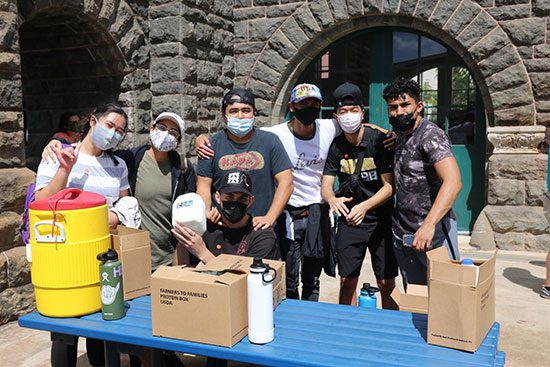
March is Women’s History Month and the time when the nation celebrates the lives and achievements of women who have broken social barriers and propelled the women’s rights movement forward.
Feminist and journalist Gloria Steinem once said: “Women are always saying, ‘We can do anything men can do.’ But men should be saying, ‘We can do anything women can do.’”
Here are some women worth noting:
Mary Walker graduated from New York Upstate University as a medical doctor in 1855. When the Civil War broke out in 1861, she tried to enlist in the Union Army as a surgeon but was denied because she was a woman. She refused to serve as a nurse because she was over qualified and felt her knowledge and expertise were better placed elsewhere. So Walker worked for free on her own time at field hospitals around Virginia. Her contributions were eventually recognized, and the Army accepted her as a paid War Department Surgeon, which has a similar rank as a lieutenant or captain. She continued to serve in the Army until the Civil War ended in 1865. That same year, Walker became the first woman to receive the U.S. Congressional Medal of Honor for her efforts saving countless lives.
Susan B. Anthony was one of the major contributors to the creation of the National Woman’s Suffrage Association (NWSA). She also spearheaded The Revolution, a weekly periodical that lobbied for things such as equal pay, equal access to education and more liberal divorce laws. The Revolution was first published in 1855 and sold to the New York Paper and continued as part of that publication until 1872.
Ella Fitzgerald was another woman who stepped the game up for women. Nicknamed “The First Lady of Song,” she was the first woman and first African-American to win a Grammy Award, eventually amassing 13 over her career. France awarded her its Commander of Arts and Letters award, just a few years after she had received the National Medal of Arts from President Ronald Reagan. Fitzgerald taught musical arts during the end of her career, earning doctorates in the arts from Dartmouth, Yale and several other universities. She set a new standard of performance and inspired women and especially women of color to follow their artistic dreams.
Alice Paul was one of the fearless women who led the suffrage movement. She was the co-founder of the National Women’s Party (NWP), an organization she helped create after being refused help from the NWSA to spearhead a campaign in Washington D.C. The NWP went on to organize its own D.C. parade for women’s rights, which successfully inspired other women to protest. Paul was arrested at a subsequent demonstration for “obstructing traffic.” While sentenced to jail for seven months, she organized a hunger strike, refusing to eat until the 19th Amendment giving women the right to vote was passed. She was force-fed and put through psychological therapy to which her only answer to all of the therapists’ questions was Patrick Henry’s famous quote, “Give me liberty, or give me death.” It was these extreme acts that sent women around the country booming with concern and anger and influenced the president into advising all members of Congress to pass the amendment.
This month, WCC is holding its annual Women’s History Month Film Festival, featuring films directed by journalism lecturer Gemma Cubero del Barrio as well as other female directors. The first day of the festival features del Barrio’s documentary Ella es el Matador (She is the Matador), about two female bullfighters in Spain. The second day of the festival features a trailer of del Barrio’s upcoming documentary, Homecoming, about author Johnny Frisbee and psychologist Amelia Borofsky who travel back “home” to the Polynesian atoll of PukaPuka.
“Amelia and I have been close for years,” Cubero said of the film’s inception. “She told me this story of visiting PukaPuka as a child. And one day she told me that she didn’t know why, but she absolutely needed to go back there, and I said, ‘Will you let me film it?’”
Also showing at the festival is Unafraid: Voices from the Crime Victims Treatment Center, a film directed by Karin Venegas, as well as The Fat Body In(Visible) directed by Margitte Kristjansson.
The film festival takes place Tuesday, March 20 and Thursday, March 22 from 10 a.m. to 12:45 p.m. in Hale ‘Ākoakoa 101. It is free and open to the public.
by Hannah Bailey, Ka ‘Ohana Staff Reporter





